On this episode of Makers of Minnesota, host Stephanie speaks with Liza Jackson and Sylvia Williams, founders of Soul Grain. The pandemic led to an increase in new ideas and people in packaged goods, with social media playing a big role. The conversation focuses on their granola flavors which are a unique and healthier alternative to sugary products. The granola has a light, crispy crunch, and a unique Lemon Meringue High flavor, made with THC with more flavors in development. They also discuss the challenges of working with a partner in business and choosing granola flavors based on their cultural backgrounds. Lastly, the episode explores the importance of taste and the difficulties of making THC products taste good. Listen in for a fascinating conversation about the packaged goods industry and the creation of Soul Grain.
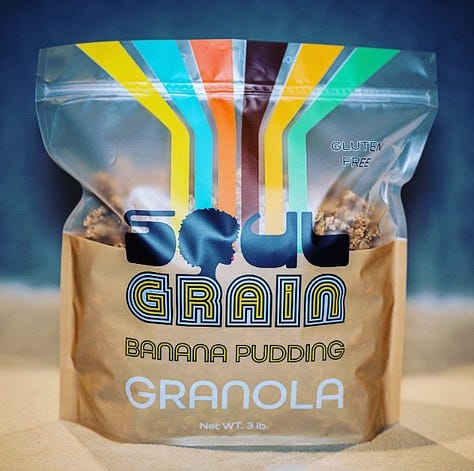
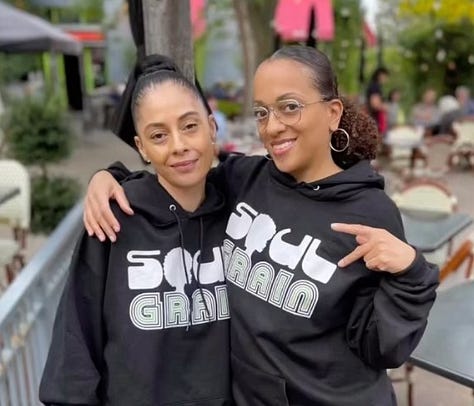
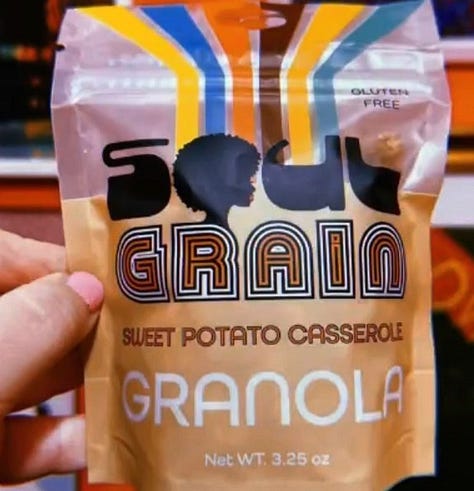
Stephanie [00:00:13]:
Hello, everybody, and welcome to the makers of Minnesota Podcast, where we talk to cool people doing cool things. I'm here with Lisa Jackson and Sylvia Williams, and they are the owners of Soul Grain, LLC. Soul Grain is a granola product and talk about fantastic packaging. Welcome to the program, you guys.
Liza Jackson [00:00:34]:
Thank you. Thank you for having us.
Sylvia Williams [00:00:36]:
Yeah.
Stephanie [00:00:37]:
How did the whole granola idea start? Which one of you had it first?
Liza Jackson [00:00:44]:
Actually, I think it was a combination, actually. We started with bars. We shifted to granola. But I'm lisa. I'm a nutritionist. Sylvia is a pastry chef. So we wanted to combine our interest and come up with super interesting flavors that are inspired by both of our cultures and background.
Stephanie [00:01:02]:
So tell me a little bit about that and how the granola is different than some of your traditional flavors.
Sylvia Williams [00:01:09]:
Well, for these granola flavors, we decided to dig into our cultural backgrounds and grab something, some flavors that you might find at our grandmother's house or something. So we chose banana pudding, which is anytime you go to a cookout or anything like that, you're going to have some banana pudding. Thanksgiving, we're always going to have a sweet potato casserole. And then we used the flavors of the Caribbean for our cocoa, mango, and spice. Paradise has grains of paradise in it. And that is a spice that's commonly used in North African cooking, which is part of Lisa's ancestry.
Stephanie [00:01:55]:
So you guys, just for those of you that are listening, lisa and Sylvia are African American, thus talking about the culture and specific to where these flavors are coming from. I didn't realize that there weren't really these flavors on the market in a granola setting. But they're not. No.
Liza Jackson [00:02:19]:
That's where we come in.
Stephanie [00:02:20]:
Yeah. I guess because I'm white, I don't think about other cultures in terms of flavor profiles. And maybe we've learned to associate maybe hot things with the Latina culture, and there's, like, hot chili and some of those flavors that you'll see there. But I am really excited to try different flavors and experience food from different cultures. How has it been received?
Liza Jackson [00:02:49]:
Oh, my God. We had an amazing response. Banana pudding is our best seller. But all of them, really everybody's really loving them.
Stephanie [00:02:58]:
They're so different and really feel different in the flavor profile and more interesting. Way more interesting.
Liza Jackson [00:03:06]:
Way more interesting than you're a pumpkin spice granola. Right. So we wanted to make the granola business a little more interesting.
Stephanie [00:03:14]:
How has it been? Your packaging is really great. Which one of you guys worked on the logo?
Sylvia Williams [00:03:22]:
Yes. We came up with an idea, and then we contacted our friend Troy Gua, who is an artist who's known kind of wildly throughout this area, specifically because he makes a Prince doll, and he's real big on social media. So he came to our attention, and we became friends. And so I contacted him with our ideas, and he created this amazing logo.
Stephanie [00:03:51]:
It is an amazing logo. And now that you talk about the Prince doll, I know exactly what you're talking about because I think he's coloring book and some other things and clearly is Soul Grain a play on the Soul Train?
Sylvia Williams [00:04:04]:
Yeah.
Liza Jackson [00:04:05]:
Soul Train and Whole grain with soul, right?
Stephanie [00:04:08]:
Exactly. That's so great. I love it. Okay, so you decide that you're going to make this product. Did you right away start out in a commercial kitchen or did you go to a distributor?
Liza Jackson [00:04:19]:
We started in our kitchen, actually with a cottage food license and then made our step up to a commercial kitchen.
Stephanie [00:04:26]:
It's interesting because before the Pandemic Cottage Foods license were pretty limited and I think the amount that you could sell was like 7500, and now you can sell up to 75,000 and still have a cottage food license. And I don't know that people know that.
Sylvia Williams [00:04:44]:
Oh, wow.
Liza Jackson [00:04:45]:
We didn't know that.
Sylvia Williams [00:04:49]:
I think so. Also, just to be able to make it on a scale that we needed to make it, we had to be in a commercial kitchen because my oven can only make so much granola.
Stephanie [00:04:59]:
Yeah, exactly. So where's your commercial kitchen now?
Sylvia Williams [00:05:03]:
It's called Water's Edge Kitchen and it's in Maplewood. It's a gluten free kitchen because we're a gluten free product.
Stephanie [00:05:10]:
Are you finding a lot of camaraderie in the kitchen, too? Is that kind of an unexpected bonus of being in the commercial kitchen? Sure.
Liza Jackson [00:05:18]:
Amazing makers in there.
Sylvia Williams [00:05:23]:
I'm sorry?
Stephanie [00:05:24]:
I said I think you learn a lot from other makers.
Sylvia Williams [00:05:27]:
Absolutely.
Stephanie [00:05:29]:
When you thought about how you're going to bring this product to market, what were your steps and what did you think the market was and has that turned out to be the market?
Liza Jackson [00:05:40]:
Well, we knew the market, obviously, the granola market is very crowded, so that's why we came up with the different flavor profile first and then thought we would enter the market that way.
Stephanie [00:05:51]:
And how do you get the word out? Do you go to markets? Do you work with a distributor? Do you cold call grocery stores and food co ops yourself? Well.
Sylvia Williams [00:06:07]:
We'Ve had a lot of success just when we approach the stores and they try our product and we've gotten a lot of success that way, and it's just kind of been snowballed. And we go to another store and then some stores have called us.
Stephanie [00:06:26]:
How many stores are you in right now?
Sylvia Williams [00:06:29]:
We are in two kowalski. We're getting ready to expand to the rest of them. We're in Regions Hospital and their gift shop, and we are at Camden Foods.
Liza Jackson [00:06:43]:
The airport store.
Stephanie [00:06:44]:
Yes.
Liza Jackson [00:06:45]:
We are soon to be in a lot of places that we can't quite say yet.
Stephanie [00:06:51]:
I understand.
Liza Jackson [00:06:53]:
But we're definitely growing and that's super exciting. It's still just the two of us, so we try on the scale strategically.
Sylvia Williams [00:07:01]:
Yes.
Stephanie [00:07:01]:
Do you have other full time jobs as well?
Liza Jackson [00:07:06]:
Yes, I do.
Stephanie [00:07:10]:
Okay. So have you guys distributed the division of labor to be like, okay, this will be your area, this will be my area, or are you collaborating, kind of, on all those decisions?
Liza Jackson [00:07:21]:
I mean, we call it out, but I think things kind of naturally fall in place, which is, I think, beautiful about our relationship. It kind of just happens.
Stephanie [00:07:28]:
How long have you guys been friends? You're very relaxed about this whole thing, which I love. Oh, yeah.
Liza Jackson [00:07:34]:
We've been friends for, what, over 14 years now?
Sylvia Williams [00:07:36]:
Yeah.
Stephanie [00:07:37]:
Okay. So you kind of figure out, you know, what each other's strengths and weaknesses are. But in when you run a business, that's harder. Have you come up against any stumbling blocks? Like, I ran a business with my husband, and, boy, did I learn a lot about working together. Not always favorable, I got to admit.
Liza Jackson [00:07:55]:
So far, we've been great.
Sylvia Williams [00:07:56]:
Honestly.
Liza Jackson [00:07:57]:
We had no hurdles on that part.
Stephanie [00:07:59]:
Right.
Liza Jackson [00:07:59]:
The hurdles are the business, but not in our relationship now.
Sylvia Williams [00:08:03]:
Yeah. We just perfectly work together in sync. And it's the weirdest thing because there's never been an issue, and I don't foresee any issues.
Stephanie [00:08:16]:
That is a little weird, but amazing. How do you guys get people to sample your products?
Sylvia Williams [00:08:24]:
We visit stores and we do samplings. Yes.
Stephanie [00:08:27]:
And once we know that once people sample a product, the likelihood of them buying it I think I heard once it was as high as if you're good at it, 30%. If you're okay at it, it's still as high as, like, 20%. Has that been your experience?
Sylvia Williams [00:08:44]:
I would venture to say that our response has been greater than that. As soon as people taste our granola, it's so unique. It's unique in flavor and in texture because it has a really light crunch as opposed to a hard it's very crispy as opposed to really hard crunch. So when I go to the stores and we do these pop ups, usually I would say nine times out of ten, people will buy the granola.
Stephanie [00:09:12]:
I love it.
Liza Jackson [00:09:14]:
We sell out for sure at all the events we've done.
Stephanie [00:09:16]:
Is there any fruit in yours?
Liza Jackson [00:09:20]:
Any what?
Stephanie [00:09:21]:
Fruit.
Liza Jackson [00:09:22]:
We have two flavor that don't have fruit or nuts.
Stephanie [00:09:25]:
Okay.
Liza Jackson [00:09:26]:
And obviously cocoa. Mango has mango.
Stephanie [00:09:29]:
Oh, yeah, obviously. Sorry, I forgot about that one.
Sylvia Williams [00:09:34]:
But Neutral Nelly doesn't have fruit or nuts for anybody who has sensitivities. And Spice Paradise has nuts but no fruit.
Stephanie [00:09:43]:
Okay. So kind of a mix. Were you big granola eaters yourselves before you ventured into this product?
Liza Jackson [00:09:53]:
I don't like granola. I like mine, though. I like ours. Seriously? I'm from France originally, and it's not a big thing there. And when I came to the US. I don't know, I never got into it until we created this product. Now I'm a big granola fan. So grain granola.
Stephanie [00:10:13]:
And do they have musli in France? Yeah, a little bit different.
Liza Jackson [00:10:19]:
So different.
Stephanie [00:10:20]:
Yeah. When you go and you look at your event profile, do you do any events that aren't in grocery stores? Like, are you doing any markets? Are you doing any tasting and sampling out and about in the community?
Sylvia Williams [00:10:37]:
We've done a few. We just did a vegan festival in New Jersey. We don't have anything on the docket right now.
Liza Jackson [00:10:46]:
We have one coming up. It's like a little outside market, but it's for a realtor company.
Sylvia Williams [00:10:52]:
Yeah.
Liza Jackson [00:10:52]:
So we do stuff like that. Okay.
Stephanie [00:10:57]:
So people will try your granola because the flavor what do you want them to know about your company? Just about you. Are there people that you are finding along the way that have been helpful to you or what kind of resources do you need moving forward?
Liza Jackson [00:11:15]:
What kind of resources do we need? I mean, obviously, as most small business, capital is becoming an issue, but we're going to work through that, hopefully. What was the other question? Sorry?
Stephanie [00:11:31]:
Is there anything you want people to know about you? Like, from a standpoint? Do you need help with social media? Do you need help with connections? If people are listening to this podcast and like the granola and want to help spread the word, what can they do to help?
Liza Jackson [00:11:46]:
All of the above.
Sylvia Williams [00:11:47]:
Yeah.
Liza Jackson [00:11:47]:
Right.
Sylvia Williams [00:11:48]:
We are really new at this and we are very passionate about what we're doing, but we're also learning as we go, so we would love any help, any resources would be lovingly appreciated.
Stephanie [00:12:05]:
Yeah. And have you had inventory issues? Because it's hard to when you're starting out, trying to get capital, your product is probably a little expensive because of the nuts and the fruit, so having enough capital to make enough and then freshness can be an issue, too.
Liza Jackson [00:12:22]:
That's a good part about granola. Right. It has a shelf, the life of six to nine months. So we haven't ran into that because we sell out pretty quickly. Oh, that is get to that.
Stephanie [00:12:32]:
All right, well, I'm going to keep my ears peeled and if I know anybody, because I welcome you guys to the space. We have so many new people that have come into packaged goods since COVID right. Because a lot of people got rejuvenated and thought about new ideas and they had the time because we weren't necessarily going into work, so people had the time to think of new products. And I would think social media has been a traditional big platform for granola makers. Is that a big platform for you?
Liza Jackson [00:13:08]:
We try. Right. It's just us doing it. So I'm not great at social media. That would be a great help. We could use as far as marketing, but not too much as far as social media.
Stephanie [00:13:20]:
So just getting it in people's mouths is what it sounds like.
Sylvia Williams [00:13:23]:
Yeah.
Stephanie [00:13:24]:
And your packaging is lovely, which helps.
Liza Jackson [00:13:27]:
Thank you.
Stephanie [00:13:28]:
Yeah. All right. Are there other products that you guys are both jazzed about that you've seen that when you're out and about that, you're like, oh, I just love that person so and so.
Liza Jackson [00:13:40]:
Let me think. We're so focused on our own right now, honestly, right? Like, blinders on. I can't think of a new yeah, we have a new product, and you can cut that out if it's not appropriate. But that's hemp infused. We have a granola hemp infused. That's amazing.
Stephanie [00:14:00]:
Okay, so let's talk about that because it's legal, and hemp has been legal for some time now. We're into more consumables. So if you eat hemp granola, what is the effect that you would feel in most cases?
Sylvia Williams [00:14:15]:
Well, it is THC. So it's a 3.25 ounce bag, and it has 20 milligrams of THC in it. We tell our newbies to start with a quarter of the bag, and it has a very calming, relaxing feel to it. We have some clients who suffer from some ailments, some cancer patients, and some I have a client who has Ms, and she takes it, and it helps with her muscle twitches, and it helps her to sleep. And I have another friend who has trouble eating, and it helps him with his appetite. And everybody says it doesn't necessarily make you sleepy, but when you do go to sleep, you sleep like a baby. So we created this granola with these health benefits in mind for people who wanted something healthier than a gummy or some of the sugar laced. So we wanted to provide something that was healthy and also had these benefits with them as well. So we just have one flavor. It's called Lemon Meringue High, and we're going to develop some more flavors here shortly.
Stephanie [00:15:32]:
Well, that's super unique and really on trend and very valued in the marketplace right now. People are really hopping on the THC products, and taste is a big part of that. Right. They have to taste good, and it is hard to get some of them to taste good. Some of the seltzers just taste like dank bong water, if I'm being perfectly exactly.
Liza Jackson [00:15:54]:
That's what I was going to say for sure. So that's what we wanted to create something that tastes good. There's no aftertaste. You can't taste or smell it at all. THC at all. It tastes amazing. And it has no high fructose corn sugar. They really put high fructose corn syrup. They usually put in gummies and things like that. So it's clean and healthy.
Stephanie [00:16:14]:
I love it.
Sylvia Williams [00:16:15]:
Delicious. And people have a problem stopping. That's why I only put 20 milligrams in the bag, because I can eat a whole bag and be a okay. And most people can eat 20 milligrams and be okay, but you got to be careful when you're eating it, because.
Stephanie [00:16:32]:
I'm the person that would eat the whole bag and be catatonic for 4 hours, not a big THC consumer. So maybe I will be over time. I don't know. It's all new to me, too. Well, it's been super nice to talk to you. Soul Grain. And the product looks great. Tastes great. I'm excited to have you guys on the scene. Hopefully, I'll run into you at a pop up before too long and consider coming out to Stone Arch Bridge Festival next year, because that's a market that I do with folks and some of the vendors that I have. It's the market that kind of launched them. So I'll look forward to connecting with you guys next year.
Sylvia Williams [00:17:09]:
Okay, that sounds good.
Stephanie [00:17:11]:
All right, we'll talk to you soon. Thanks, ladies.
Sylvia Williams [00:17:13]:
Thank you. Bye.

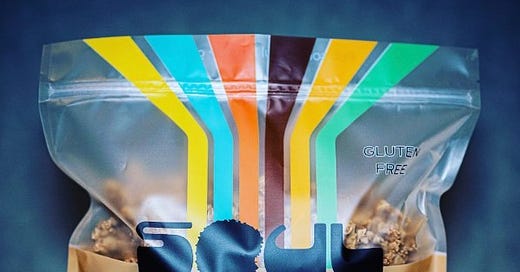
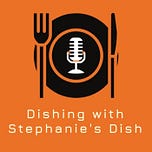

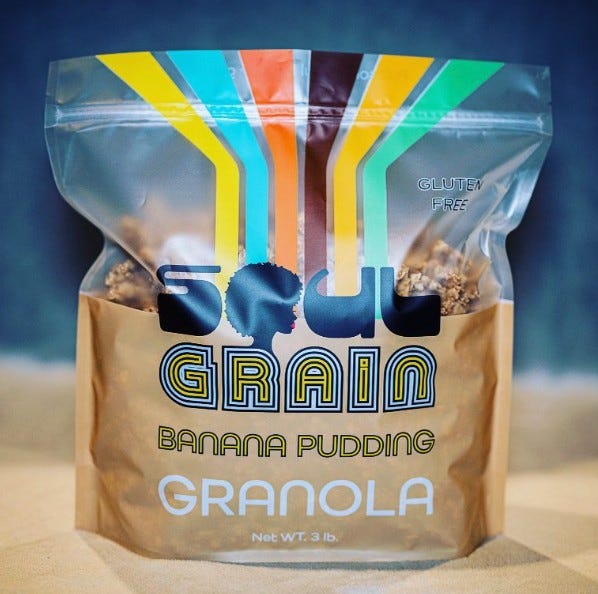


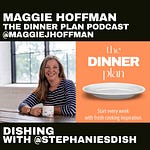


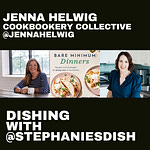



Share this post